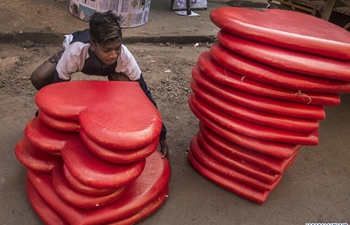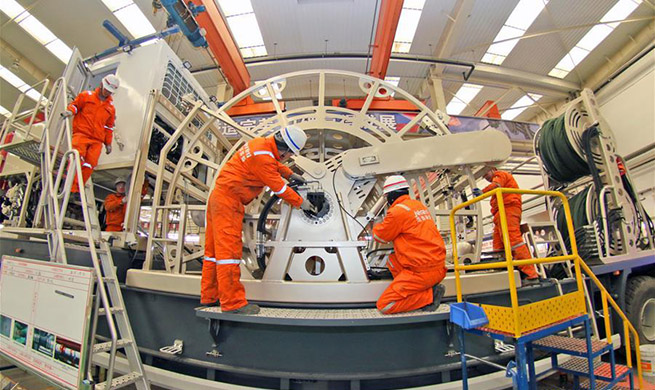WASHINGTON, Feb. 11 (Xinhua) -- U.S. tariff hikes on imports from a wide range of countries will backfire to affect domestic jobs, with agriculture and service sectors being the chief victims, a recently released study showed.
The study "Estimated Impacts of Tariffs on the U.S. Economy and Workers" showed that U.S. net employment will decline by 943,700 in total number as a result of all U.S. and retaliatory tariffs in effect or announced as of Nov. 1, 2018.
In one to three years after the tariffs are imposed, it said, while the U.S. steel and aluminum tariff hikes will lead to a surge of 83,800 manufacturing jobs, agriculture and service sectors are set to be net losers, with their jobs projected to reduce by 59,300 and 949,700, respectively.
The study was conducted by Trade Partnership Worldwide, LLC and commissioned by Tariffs Hurt the Heartland, a pro-free trade group. The results were released last Wednesday.
In the service sector, the construction industry and wholesale and retail trades topped the ranking, each expected to lose more than 200,000 jobs, according to the study.
The study drew conclusions based on a "base scenario" it set, taking into account U.S. tariff hikes imposed on steel and aluminum imports from a wide range of countries, and retaliatory tariffs by the affected countries on selected U.S. goods.
The scenario also includes the U.S. imposition of additional tariffs on Chinese imports and China's retaliatory tariffs on U.S. goods.
"Overall, 126,900 workers gain jobs as a result of the tariffs; however, 1,061,400 lose jobs -- more than eight for every job gained," the study said, adding that the tariffs would cost the U.S. economy 490,900 dollars for every job gained.
"Our hope is that the administration understands they are playing with fire," said Charles Boustany, Tariffs Hurt the Heartland spokesman and a former congressman. "It's time for the administration to take tariff increases off the table for good, end the threat of new tariffs and finally bring an end to the crippling tariffs we are facing right now."
The study set the worst case as the "base scenario" in addition to U.S. tariffs of 25 percent on motor vehicles and parts imported from other countries, and of 25 percent on all remaining imports from China, plus retaliation.
In that case, the study said, the tariffs will drag down the U.S. gross domestic product by 1 percent a year, cost a family of four 2,300 dollars a year and produce a net loss of 2.1 million domestic jobs.













